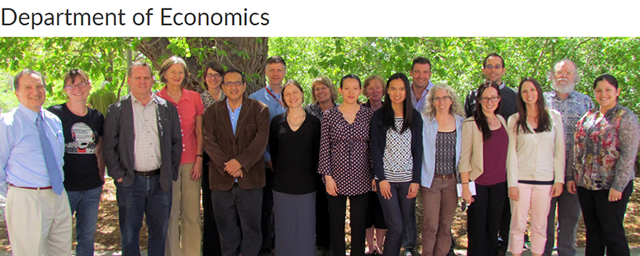
Economics ETDs
Publication Date
Summer 7-29-2019
Abstract
The 2018 IPCC report declared damages from climate change rapidly approaching. This dissertation consists of three empirical studies employing unique data sets and three econometric methods. First, I consider energy portfolios; I find that political affiliation is not the strongest driving factor of heterogeneity. Second, I examine the impact of observable characteristics in explaining preferences for the environment and regulation; I find opinion on climate change is an important factor and that omitting it results in changes to the significance of other factors. Finally, I study the impact of wildfires on visitation to national parks; I find that in the short run, visitation increases following a wildfire but as the number of fires per year increases, visitation decreases. Using both revealed and stated preference studies, I find that preferences do not fit into neat boxes that can be succinctly summarized. These results provide insights form policymakers to better develop policies.
Degree Name
Economics
Level of Degree
Doctoral
Department Name
Department of Economics
First Committee Member (Chair)
Janie M Chermak
Second Committee Member
Jennifer Thacher
Third Committee Member
Brady Horn
Fourth Committee Member
Shana McDermott
Project Sponsors
(NSF EPSCoR Energize New Mexico Award # 1301346); Center for Regional Studies
Language
English
Keywords
natural resource economics, environmental economics, preferences, wildfire, energy
Document Type
Dissertation
Recommended Citation
Walter, Kara A.. "The impact of exogenous shocks and heterogeneity on demand and preferences environmental and resource goods in the Southwestern United States." (2019). https://digitalrepository.unm.edu/econ_etds/111
